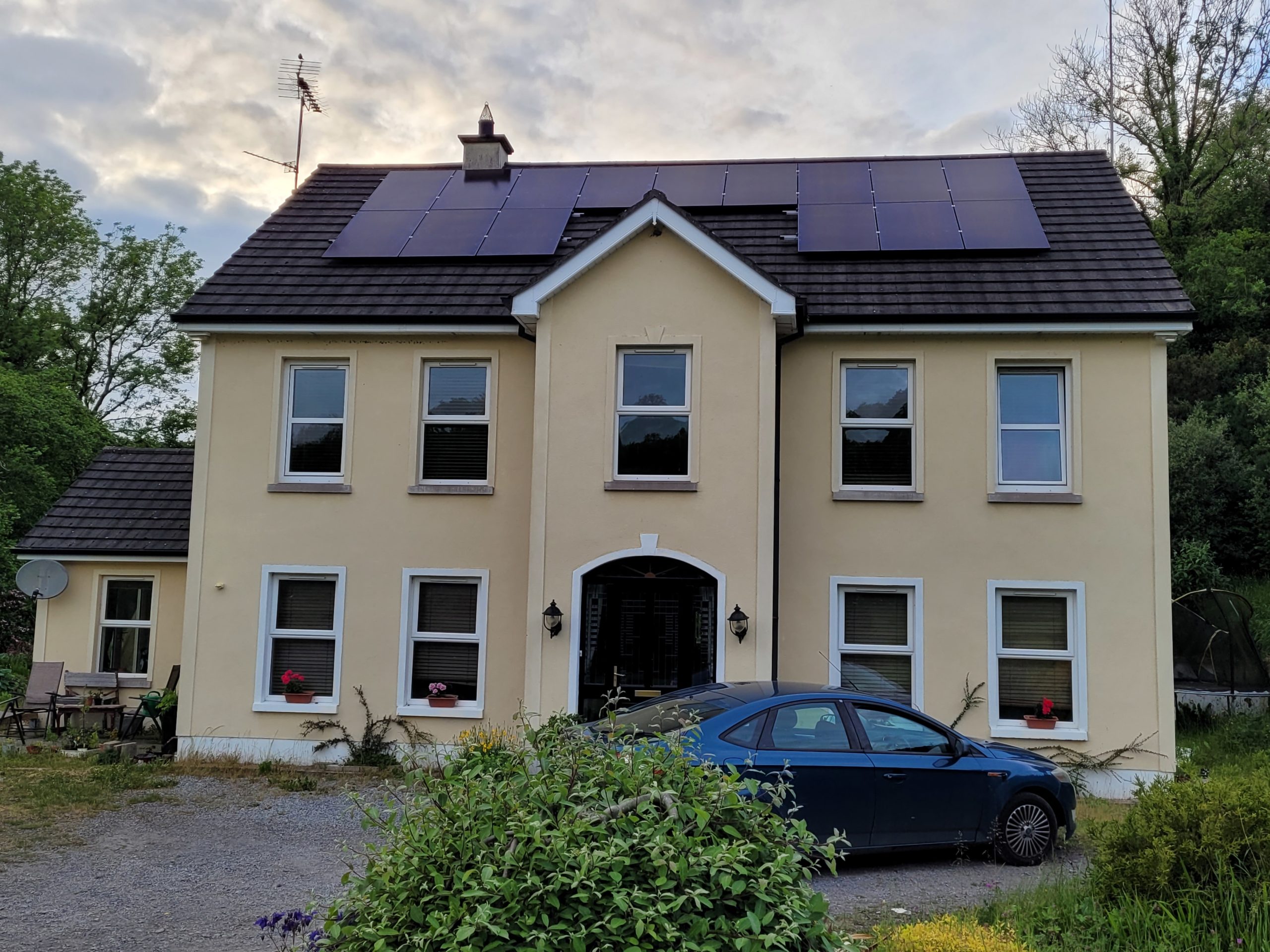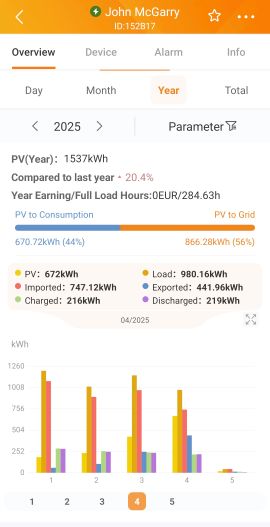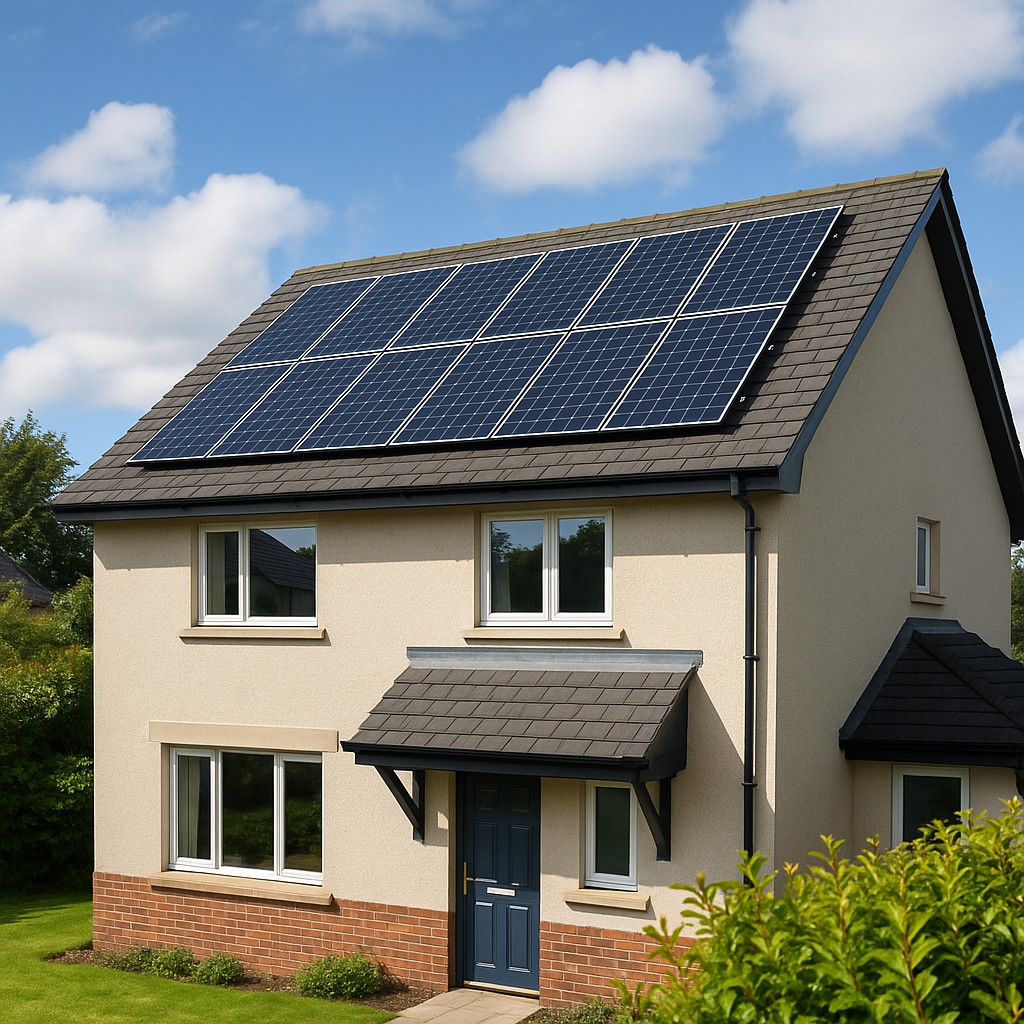What is the difference when it comes to solar PV vs solar thermal?
Both solar photovoltaic (PV) panels and solar thermal panels use the same source of energy – the sun. However, there is a distinct difference between solar PV and solar thermal technologies in that they are used for different purposes. Solar PV converts raw energy from the sun into electricity for use in the home, whereas solar thermal converts this energy into heat for heating hot water in your home.
So, which option is the better investment for the Irish consumer?
The Answer to Solar PV vs Solar Thermal
The answer to this question all depends on what energy needs you are looking to cover – home heating or general electricity. Solar thermal power is generally used for water heating; however, it can also be used to provide heat for the home. It is a simple system wherein the panels that have been installed on your roof collect the sunlight. This in turn heats up the liquid in the tubes within the panels, which is then transported into your hot water tank. It is stored here until you are ready to use it.
Advantages of Solar Thermal
- Solar thermal technology is more space efficient than solar PV. The panels tend to take up less space on your roof, making it ideal for those with less roof space.
- The technology of solar thermal is significantly less complex than solar PV.
- Solar thermal has a high efficiency rate. It can be up to 70% more efficient when it comes to collecting heat from the sun’s rays than solar PV.
- Solar thermal is less sensitive than solar PV to light, therefore works better on a cloudy day.
- It is the ideal environmentally friendly solution for heating water if you already have a hot water cylinder installed in your home.
Solar Thermal Issues
The main reason to opt for solar thermal energy rather than solar PV is for the space that it saves. Solar PV panels could take up to 2-3x more space on your roof than a solar thermal system for water heating. This is due to the higher efficiency rate of solar thermal as mentioned above. However, solar thermal takes up more space in your home due to the need for a hot water cylinder. There is also the potential for leaks with solar thermal as there are many pipes linking the system components, this issue is not associated with solar PV.

Advantages of Solar PV
- They have a long lifespan and can provide you with clean energy for roughly 30 years.
- They can cover up to 80% of your household’s electricity needs, sometimes even more.
- They are incredibly efficient in summer time and can’t freeze in winter time (solar thermal can freeze).
- They are suitable for households with high-energy consumption.
- Grants are available from the SEAI to help application/subsidise the initial upfront cost of the investment.
Can Solar PV heat your water?
A major reason to opt for solar PV rather than solar thermal is that it is considered to be more flexible. Solar thermal is limited to heating just your hot water, whereas solar PV can cover both your electricity and hot water needs. A diverter within the solar PV system will monitor when you are generating excess electricity. Instead of sending this electricity back to the grid, the diverter will re-route this electricity to your immersion to heat up your water.
Why Solar PV is the Winner
The cost of energy on the grid is rising annually by roughly 3.5%, whereas the technologies as well as the pricing of solar PV systems are only improving. This ensures that a solar PV system can only be seen as a sound investment when it comes to saving money and reducing your carbon output. The chart below illustrates the advantages that solar PV has over solar thermal in relation to the amount of energy produced by each system.

Solar PV has the edge over solar thermal in that it generates electricity, which as explained above can also be used to heat your water. Whereas solar thermal is a system that is exclusively dedicated to heating water or air. Furthermore, the initial upfront costs of solar PV can be subsidised by the government SEAI grant scheme. Solar PV owners will soon also be able to sell excess electricity that they generate throughout the year back to the grid and generate further savings on their home energy costs.

If you are interested on saving money on your energy needs then check out our website to see how you can save. Contact us today for a free quote and let us help you start your journey to zero carbon living!








